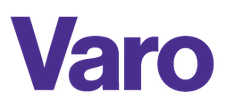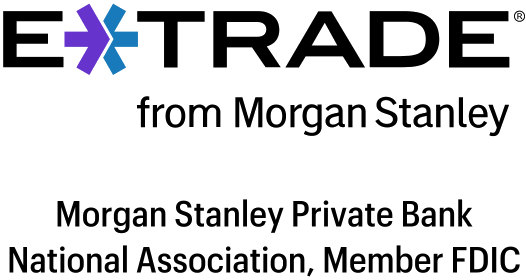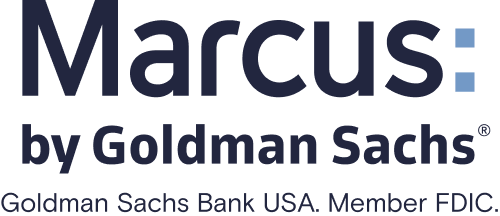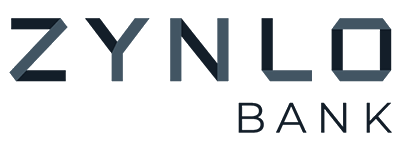13 Neobanks or Banking Fintech Firms and What They Offer
Neobanks differentiate themselves by focusing on specific communities, offering nontraditional perks and more.

Many, or all, of the products featured on this page are from our advertising partners who compensate us when you take certain actions on our website or click to take an action on their website. However, this does not influence our evaluations. Our opinions are our own. Here is a list of our partners and here's how we make money.
Jump to a specific neobank or category:
For credit and savings: Oportun
For credit building: Sesame Cash || MoCaFi || Dave
Traveler-friendly: Monzo (U.S.)
Teen-friendly: Greenlight || Step
Emerging: Bunq
List of neobanks we've reviewed
Neobanks are financial technology — or fintech — companies that typically offer banking accounts through mobile apps and desktops with eye-catching features like low-cost credit or cash-back rewards. Some neobanks offer high-yield savings accounts, loans, credit cards or investing products, too.
Neobanks operate without branches and, since they lack bank charters, they partner with banks to provide accounts insured by the Federal Deposit Insurance Corp. All neobanks in this article have FDIC-insured accounts, but they have additional risks that banks don’t have. In addition, when neobanks handle investments or other nondeposit activity, not all accounts are FDIC-insured.
» Learn more: What is a neobank?
Forbright Bank Growth Savings

4.00%
$0

Member FDIC
Varo Savings Account

5.00%
$0

Member FDIC
E*TRADE Premium Savings

3.50%
$0
Our main list shows neobanks that NerdWallet hasn’t reviewed for its deposit accounts yet but that we find notable or promising (skip to our methodology for how we chose this list). The second list shows neobanks that we have reviewed, including some digital wallets like Cash App and Venmo, that can be considered neobanks based on similar features.

Neobanks: Their role, disadvantages and benefits
Fintech firms — that are also known as neobanks — have been around as alternatives to banks in the U.S. for more than a decade, beginning with the now-defunct Simple in 2009, long before the term “neobank” caught on. As of 2022, there are close to 400 neobanks worldwide, according to the global business consulting firm Simon-Kucher.
Neobanks differ from online banks, which are licensed banks with typically few or no physical locations. Online banks can either be standalone internet-based banks or divisions of traditional banks. Some online banks include Marcus by Goldman Sachs, Capital One and Ally.
Neobanks face some disadvantages: Simon-Kucher estimates that only 5% of neobanks worldwide have reached profitability, highlighting a key challenge for this newer type of banking institution. Plus, some once-innovative services like early direct deposit and free access to nationwide ATM networks such as Allpoint and MoneyPass have become commonplace among U.S. neobanks, upping the competition to stand out.
Since they aren’t banks, there’s also a more risky and less clear process for what happens when neobanks fail than when banks do. FDIC insurance only kicks in when a bank, such as a neobank’s partner bank, fails. If a neobank fails, there’s no guarantee that you’ll get your money back in a timely manner or have continuous access to your money.
» Learn more: 5 questions to ask before opening a neobank account
Despite challenges, the reasons why people use neobanks are clear. Neobanks have drawn in millions of consumers to their checking or savings accounts with lower costs and more technology-driven perks than traditional banks usually provide. In fact, neobanks were early adopters in offering early direct deposit and not charging overdraft fees. They also played a key role in the COVID-19 pandemic during the first stimulus payment rollout, as a 2021 NerdWallet report found. Some neobanks focus on underrepresented communities often overlooked by traditional banks as well.
Oportun
Oportun was founded in 2005 and offers a variety of services in addition to its credit and savings products, including personal loans and investing. It partners with Pathward N.A. and other partner banks to provide FDIC insurance for its banking products. Customers who have a personal loan with Oportun get one free year of access to the Oportun app, which is designed to help customers with setting goals, increasing savings and reducing overdrafts. For customers who don’t have a personal loan, there is a free 30-day trial. The fee after any free trial is $5 per month.
For credit building
Sesame Cash
The online lender Credit Sesame, founded in 2010, launched a free digital banking account in March 2020 that focuses on serving people living paycheck to paycheck. The Sesame Cash account provides a way to build credit history without a credit card as well as access to credit monitoring alerts and your credit score. There’s also cash back on debit card purchases. However, the account charges a $9.99 monthly fee and a $3 inactivity fee unless you meet these requirements: Any transactions monthly for the inactivity fee and a minimum amount of direct deposits or purchases monthly for the monthly fee. And there’s no customer support number. Credit Sesame partners with Community Federal Savings Bank to offer its FDIC-insured account.
» COMPARE: Best budgeting apps
MoCaFi
MoCaFi, or Mobility Capital Finance, is a Black-owned digital platform launched in 2016 that partners with Sunrise Banks N.A. to provide free checking to serve largely unbanked and underbanked communities, with a focus on closing the racial wealth gap. It provides a bill pay feature that lets customers report rent payments to major credit bureaus to build credit history. As a rare perk, MoCaFi works with its third-party partners to provide free cash deposits at various retailers and free mobile check deposits with fast release of funds. A $5.95 inactivity fee is charged monthly for accounts that are unused for one year.
Dave
Dave launched in 2017 as a paycheck advance company and expanded to offer spending accounts that let you round up purchases and pocket the difference as savings. You can also get a small advance on your next paycheck without interest charges or a credit check, and you can build credit history through repayments. In addition to these savings and credit features, Dave provides budgeting that factors in upcoming bills and the ability to search for side jobs in its mobile app. There are no minimum balance requirements and no fees for overdrafts or for using ATMs within the nationwide MoneyPass network. However, there are fees for advances, which are offered as an emergency overdraft service. Dave partners with Evolve Bank & Trust to offer FDIC insurance to deposit customers. (Read our review of Dave’s paycheck advance service.)
Stash
Founded in 2015, Stash offers an online account for customers who want to shop with a debit card and also transfer funds into investments. Premium subscribers who shop at certain brands receive an additional perk: fractional shares of matching stock. The fintech charges subscription fees of either $3 or $9 a month, based on subscription level (though the first month is free). Stash partners with Stride Bank N.A. to offer FDIC insurance for customer deposits. Note that investment balances aren't FDIC insured. (Read the full review.)
Acorns
The microinvesting firm Acorns, founded in 2012, expanded beyond its automated investing for hands-off investors into banking in 2018 with Acorns Checking. The main selling point is having one app for spending money and investing portions of each paycheck or debit card purchase. There’s a limited rewards program where certain purchases earn money that goes to your investment account. Acorns has three account packages with monthly fees ranging from $3 to $9, and Acorns Checking is available for all tiers. Acorns partners with Lincoln Savings Bank or NBKC Bank to offer its FDIC-insured banking account. (Read Acorns investing review.)
Albert
Albert started in 2016 as a money management app, and it launched a personalized banking service called Albert Cash in August 2021. Albert Cash is a banking account that earns cash back and includes the following benefits: no-interest cash advances of up to $250; integrated budgeting and savings tools; and a personalized customer support service, called Genius, that helps customers invest and automate their savings. Albert partners with Sutton Bank to provide banking services, and it partners with Axos Bank, Coastal Community Bank and Wells Fargo to provide FDIC insurance on savings accounts.
Traveler-friendly
Monzo (U.S.)
Founded in 2015, the United Kingdom-based company Monzo launched its digital banking platform in the U.S. in 2022. Its spending account’s most notable perk is no foreign transaction fees, including no foreign ATM fees (other than those charged by the ATM owner). Other features that can help during traveling include real-time transaction alerts and the ability to freeze a card if it’s missing, and there are no monthly fees or overdraft fees. One drawback is that customer support by phone isn't always available and it may need to call you back, though chat support is available all hours during weekdays and limited hours on weekends. Monzo’s accounts are offered through its partnership with Sutton Bank.
Teen-friendly
Greenlight
Greenlight Financial Technology Inc. was founded in 2014 and the Greenlight card and app for kids launched in 2017. Greenlight offers family-friendly features, including options to create spending controls and notifications, connect chores to allowance and invest together. Cash back earned from spending goes to savings, which can earn a high rate depending on your subscription plan. The Greenlight app’s banking services are offered through its partnership with Community Federal Savings Bank. Greenlight doesn’t charge overdraft fees or ATM fees, but there is a monthly fee; the amount depends on the plan you choose. Greenlight also partners with some banks and credit unions to offer its products for free through those financial institutions.
Step
Step was founded in 2018 and offers a variety of products and services that can help teens with their finances. It provides FDIC insurance on its deposits through its partner bank, Evolve Bank & Trust. Step’s savings account has a high interest rate if customers set up direct deposit and they deposit $500 or more per month. The app allows customers to round up their purchases to the nearest dollar to contribute to their savings account as well as set savings goals. Other features include the ability to get paid two days early and to earn rewards by spending. Step also helps teens build their credit and invest before they turn 18.
Migrant-friendly
Majority
Founded in 2019, Majority provides banking services through its app and in partnership with Axiom Bank N.A. and Sutton Bank. Majority doesn’t require a Social Security number for its checking account and debit card, and it offers features that are especially migrant-friendly: customer support in different languages, fee-free money transfers, unlimited free calls to about two dozen countries and low rates for calls to other countries through the Majority app. Direct deposits are federally insured and can be available up to two days early. Majority doesn’t charge overdraft fees or foreign transaction fees when using the debit card, but there is a $5.99 monthly fee.
Comun
The Latino-founded neobank Comun, which started in 2021, focuses its offering for the Latino community, including helping migrants better access financial services. Applicants can use a Social Security number, taxpayer identification number, foreign passport or other form of ID during sign-up. The spending account has no monthly fees or minimum balance requirements, and it works with several domestic and international money transfer apps such as Remitly and Xoom, which can help when sending money to family and friends in different countries. Depositing cash is available at 1,500 ATMs at Walgreens and CVS, which is far fewer than what some other neobanks provide. Comun partners with Piermont Bank to offer its banking services.
Emerging
Bunq
Founded in 2012, the Dutch digital banking firm Bunq plans to enter the U.S. after becoming one of the biggest neobanks in Europe — with the rare combination of having a European bank charter and being profitable. The U.S. account details haven’t been released on its website, but looking at Bunq’s European accounts, there are more than 50 mobile banking features, including the ability to budget and create subaccounts, a Mastercard with the user's chosen name, joint savings accounts, and the ability to have multiple currencies in one place (the core feature of what’s known as a multicurrency account). However, Bunq charges monthly fees on all of its spending accounts, and not all features are available for all accounts. In April 2023, the neobank announced that it has applied for a U.S. bank charter.
Methodology
We mostly considered neobanks (or fintech banking firms) that have the following: consumer spending and/or savings accounts with no or low monthly fees; clear and useful features that traditional banks don’t often provide; venture funding as a metric for industry interest; and search volume as a metric to gauge consumer interest. Our list focuses on neobanks that we don’t already review for their consumer deposit accounts on our website, followed by a list of neobanks we’ve covered with links to our reviews. In cases where we've reviewed a neobank for different financial offerings, we've typically included the review that focuses on consumer deposit accounts.
Neobanks we’ve reviewed
Standard (nonbank) neobanks
These are fintech firms that follow the trend of partnering with banks to offer FDIC-insured deposit accounts.
Firm (select to read review) | Main perk | Partner bank(s) |
|---|---|---|
See more information from Chime | Fee-free overdraft program. |
|
Fee-free overdraft program. |
| |
High-yield savings account. | Coastal Community Bank. | |
Business account with no monthly fees. | Choice Financial Group. | |
Walmart's One | Cash-back rewards at Walmart. | Coastal Community Bank. |
Business account with no monthly fees. | The Bancorp Bank N.A. | |
Multicurrency account. |
| |
Cash-back rewards. |
| |
Multicurrency account. |
|
Digital wallets with banking services
These digital wallets, also known as peer-to-peer transfer apps, expanded into banking with debit cards and early direct deposit services. One note of caution: Not all types of balances at these digital wallets have FDIC insurance, such as in-app balances from sending money. Accounts associated with banking services such as debit cards or direct deposit or check deposit are FDIC insured at partner banks.
Fintech firms with cash management accounts
Some nonbank fintech firms focus on brokerage or investment accounts while also offering a type of banking account called a cash management account. This account often combines features from checking, savings and/or investment accounts.
Firm (select to read CMA review) | Main perk | Partner bank(s) |
|---|---|---|
High-yield cash account. |
| |
Cash-back rewards at eco-friendly merchants. |
| |
High-yield cash account. |
|
From credit tracking tools to travel perks, modern checking accounts offer more than their predecessors did. But before getting one, check whether the fintech company is a bank or partners with a bank, and see which features would best serve your financial life.
Former neobanks that became online banks
Although not typical for neobanks, some end up getting bank charters to become banks themselves. They’re no longer neobanks, though they often share features closer to neobanks than online banks, many of which don’t offer checking accounts. See our reviews of these online banks:


















